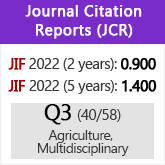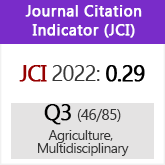Short communication. First detection of Israeli Acute Paralysis Virus (IAPV) in Spanish honeybees
Abstract
Spanish bee samples were analyzed for the presence of Israel Acute Paralysis Virus (IAPV). Some of these samples were collected from colonies presenting compatible symptoms with the colony collapse disorder (CCD, 240 out of 484) and the rest were asymptomatic. Only one of these samples was diagnosed as positive to IAPV by employing a one step RT-PCR that targets the ORF 2 of the IAPV genome. Specificity of the RT-PCR assay was evaluated by sequence analysis of size specific amplification products. IAPV nucleotide sequences already published in GeneBank were used to construct a phylogenetic tree that included the new Spanish IAPV sequence (FJ821506). They segregated in two main lineages and the Spanish isolate was mainly related with the American ones. As IAPV was detected in Spain in a very low frequency, no causal relation between IAPV and CCD in Spain was found.
Downloads
© CSIC. Manuscripts published in both the printed and online versions of this Journal are the property of Consejo Superior de Investigaciones Científicas, and quoting this source is a requirement for any partial or full reproduction.
All contents of this electronic edition, except where otherwise noted, are distributed under a “Creative Commons Attribution 4.0 International” (CC BY 4.0) License. You may read here the basic information and the legal text of the license. The indication of the CC BY 4.0 License must be expressly stated in this way when necessary.
Self-archiving in repositories, personal webpages or similar, of any version other than the published by the Editor, is not allowed.















